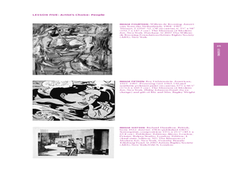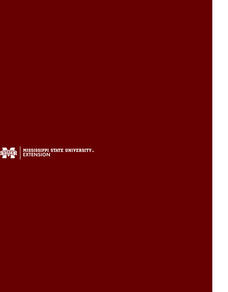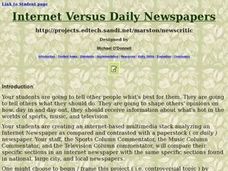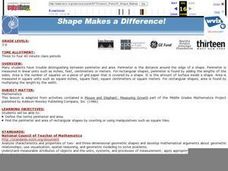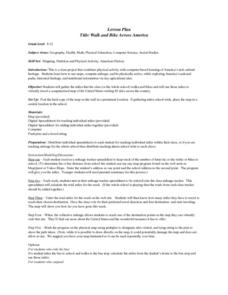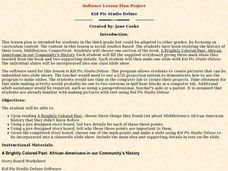Curated OER
Fact Or Fiction
Young scholars demonstrate their ability to distinguish between fact and fiction. Students identify the features of weather-related adages and proverbs. After reviewing several weather adages, young scholars explain whether they are...
Curated OER
Figure Analysis
Learners review the elements of design and how they relate to fashion. Individually, the perform a self-analysis on their body type and identify the appropriate clothing type. To end the lesson plan, they sketch their own clothing...
Curated OER
Art and Politics
Students analyze the work of three artists whose art work illustrates important political and social events. In this art analysis lesson, students analyze the art of Jasper Johns, Charles Moore, and Andy Warhol. Students complete image...
Curated OER
Sequencing Stories
Learners explore dramatization. In this literacy fluency and drama lesson, students listen to the story Mop Top by Don Freeman and add related sounds at the appropriate times. Learners role play, pantomime, and add sounds to create a...
Curated OER
Going on a Bear Hunt
Students investigate pantomiming by going on a fictitious bear hunt. For this performing arts lesson, students collaborate in groups to sing songs and perform pantomimes based on a hunting trip. Students create their own dance to...
Teach Engineering
Bone Density Challenge Introduction
Can you use X-rays to measure bone mineral density? This is the essential question that learners must answer in the first installment of a seven-part series. They brainstorm ideas about necessary background information and what they...
Curated OER
President Obama's Address to Students Across America
Students write about goals, responsibility, and persistence, and listen to President Obama's speech. In this President Obama lesson students create concept webs, listen with a purpose, and list the challenges of our generation.
Curated OER
President FDR and the New Deal
Students explore the New Deal and President FDR. In this Great Depression lesson plan, students listen to an FDR Broadcast (Fireside Chat) and read sections in their textbooks. Then, in small groups students design and create a broadcast...
Curated OER
Calendar Creations About The Civil War
Eighth graders research Civil War events occurring during one month of the year, recording specific events and the dates on which they occurred. They list each event by month, day, and year on a one-month calendar of their own creation.
Curated OER
Internet Versus Daily Newspapers
Seventh graders address a series of questions based on Bloom's Taxonomy. Students find a position to be formulated and defended, specifically the Internet newspaper or the traditional daily newspaper. Students create a five card...
Curated OER
Shape Makes a Difference!
Learners learn the difference between perimeter and area by watching a video and a hands on activity.
Curated OER
Our Community- In Sculpture Form
Students use the works of William H. Johnson as the basis for a project. The objective is to use his works as a demonstration of communication to the community. The sculpture is supposed to be made out of clay.
Curated OER
Triton Toys
Students investigate the hydrological cycle. The instructional activity is made to be performed within the computer lab. The instructional activity can also be done as a center for students to work on the project as time allows.
Curated OER
Water-our Precious Resource
Students complete a unit of lessons on water as a limited resource. They conduct Internet research, record information in electronic journals, utilize spreadsheets, conserve water and record the results, and conduct water safety tests on...
Curated OER
Walk and Bike Across America
Students learn how to use maps, compute mileage, and be physically active while exploring America's national parks, historical heritage, and nutritional information via key agricultural sites.
EngageNY
Documenting Research: Sorting and Recording Information About the Wheelwright
Fourth graders practice using a graphic organizer to record their notes and answer text-dependent questions while supplying evidence of how they found their answer. They focus on a machine called the wheelright, which was commonly used...
Curated OER
Air Pollution in Mexico City
A fantastic lesson on urban air pollution problems throughout the world is here for you. Learners understand that there are many factors involved in creating pollution, that there are many health effects brought on by air pollution, and...
Curated OER
Modern Minstrelsy: Exploring Racist Stereotypes in Literature and Life
Satires may be designed to expose a bias to ridicule but if misunderstood can they reinforce that bias? Langston Hughes poem, “Minstrel Man” opens a discussion of racist stereotypes, the minstrel tradition, and the musical, “The...
Curated OER
Harry Shows Us How
Students are provided an avenue to express his/her understanding of the life skills being taught and connect the life and times of Harry Truman to the life skills being taught for the purpose of adding relevance for each student.
Curated OER
A Brightly Colored Past
Middle schoolers read A Brightly Colored Past, choose three things they found out about Middletown's African-American history that they didn't know before, and create slide using Kid Pix Studio Deluxe to be incorporated into classwide...
Curated OER
How is Our Government Organized?
Students explore rights of their clients. In this constitutional law lesson, students play an online game that requires them to review individual cases in order to determine the rights their clients have.
Curated OER
Constitution
Ninth graders simulate a U.S. Supreme Court hearing concerning a First Amendment case about school prayer by participating in a hearing.
Curated OER
The Economic Differences Between the North and the South Prior to the Civil War
Seventh graders identify and explain the economic differences between the North and the South incorporating photographs and a Venn Diagram to interpret the two sides. They complete a KWL and T-chart to assist them with their task for the...
Curated OER
Couch Potato or Inertia Victim?
Sixth graders how primary research is carried out. They design a simple survey questionnaire to interview people about their week average television watching time. They analyze the results and write a report based on the information.




